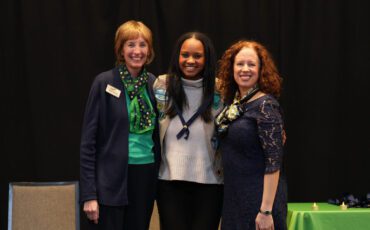Dyslexia Education: Approaches to Remediation

The Schenck School
The Schenck School, found in 1959, pioneered education for struggling readers. Now, Atlanta is fortunate to have many schools throughout the metro area to educate children with dyslexia. Some common approaches area schools use are Orton-Gillingham, Wilson Reading System, Fast ForWord and specialized individual instruction.
The Schenck School helps educate students with dyslexia using the Orton-Gillingham approach, which provides intensive instruction in phonics and phonemic awareness and improves language skills. “A dyslexic learner can learn to read with a more thoughtful, practiced approach,” says Head of School Josh Clark. “The Orton-Gillingham approach teaches the rules of the English language, spelling patterns, vowel teams, ways that letters come together to perform certain sounds. Students have multiple avenues to internalize rules and become more automatic at these associations.” Students attend the school for a few years before they transition to a traditional schooling program with the help of Schenck’s Outplacement Program.

The Cottage School
The Cottage School helps students with a specialized and incentivized work-based program. This helps address executive function skills and anxiety, while catering to students who need assistance. “It helps address challenges in reading, writing and math, but it’s really about being able to find your voice,” says Head of School Steve Palmer. “The goal is to address challenges as they go and teach them to advocate for themselves. It gives them the confidence they need to say, ‘I am smart, and I can do this.’”
Brookwood Christian School utilizes the Wilson Reading System and Fast ForWord programs. “Wilson is a step-by-step program that starts with the smallest unit of sound and teaches the structure of the English language,” says Principal Kim Wigington. “Fast ForWord is an online computer program for students with an auditory processing disorder.” Students with dyslexia often have trouble reading a math book, so the school also uses Teaching Textbooks, a computer-based math program that reads the text to them.

Brookwood Christian School
Students with dyslexia are taught unique ways to learn and understand the English language. “People with dyslexia have to sound out words every time they read them,” Wigington says. “New neural pathways can be formed to make decoding happen more quickly, but that particular part of the brain is never automatic.”
“Some of the brightest people in the world, from inventors to entrepreneurs to actors, have dyslexia,” says Palmer. “Their brains learn differently, and reading doesn’t come as naturally. They must work harder at it. The secret is to teach differently. The best approach for any learning difference is multisensory.” Palmer suggests teaching children letters by drawing them out with shaving cream or tracing them in sand, so they can touch them, or using manipulatives, such as candy, to demonstrate addition and subtraction when teaching math.
Along with dyslexia, students can also have dyscalculia, dyspraxia or dysgraphia, other neurobiological learning differences. It is difficult for students with dyscalculia to have a concrete understanding of math, and they need visual aids, according to Wigington. With dysgraphia, there is a processing disconnect between the eyes, brain and hands, but students usually do not have trouble expressing themselves verbally, while students with dyspraxia will always need speech therapy, Wigington says.
After discovering your child has dyslexia, you must view learning differently, advises Palmer. “Look up alternative ways to teach. Start multisensory practices at home,” he says. “If they have been screened with professionals, come up with a curriculum that will be the best route for them. Look for experts. Find someone who has been certified and trained to get advice on curriculum.”
Clark suggests determining what difficulty is the hardest for your child to overcome. “Once you understand the nature of their difficulties, you can find the best path for moving forward for intervention and support,” he says. “Talk to their teacher to see how they perform in the classroom. Intervention may include tutoring, a program like Schenck or discovering what the options are at your public school.”
Wigington recommends finding a school near you specializing in dyslexia. “Students really need to have their whole day structured around the way they learn,” she says. “If you cannot afford a private school, find a private tutor who specializes in Orton-Gillingham methods. If you homeschool or can work with your child after school, Barton Reading is a good curriculum to use. Dyslexia is the easiest learning disability to overcome, but it must be addressed from all angles as early as possible.”
Specialized Education in Metro Atlanta:
Full Immersion Dyslexia Schools:
- Atlanta Speech School’s Wardlaw School
- GRACEPOINT School
- Sage School
- The Swift School
- The Schenck School
- Brookwood Christian School
Schools Specializing in Learning Differences, Including Dyslexia:
- The Bedford School
- The Cottage School
- Mill Springs Academy
- The Howard School
“Schools Within a School” – Schools with Dyslexia Support Programs:
- Mt. Paran Christian School
- The Walker School
- St. Martin’s Episcopal School
Read more about dyslexia here.







